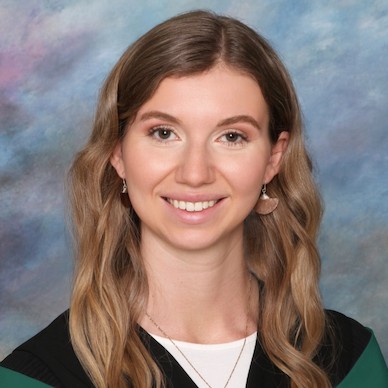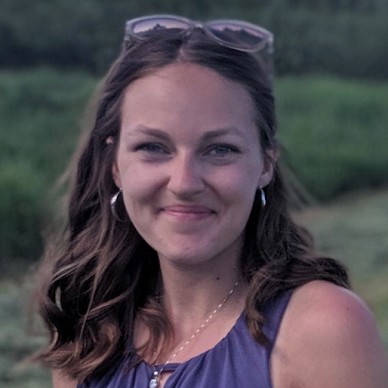
Have you ever wondered about the life cycle of a Capstone project? These projects, which are central to the MOT program, are designed to enhance students’ knowledge of research and use of evidence for practice; they begin in Term 2 of students’ very first year, and they give students the hands-on experience of collecting, analyzing, and disseminating evidence that has relevance and value to occupational therapy and/or occupational science.
Second-year MOT students Nicole Carlson and Alexandra Swan, who recently presented their research to an audience of occupational therapists, policymakers, and people with neurological disorders, sat down with us to tell us more about the research that they have been conducting since last April.
This project started with a list of options, from which students get to select their top choices. “This project was immediately interesting to me,” Nicole said. “From my previous work in inpatient rehab and private practice, I knew there was a gap to fill. Driving is a valuable and meaningful occupation to a lot of people; we all retire from it eventually. That process might just look different for people with neurological conditions.” Alexandra, who grew up in a small town, had seen the impacts of losing the ability to drive in her personal life. “People with neurological conditions fall through the cracks,” she explained. “There’s no programming in place, so they often get in an accident and have their licenses revoked all of a sudden. They don’t have the chance for a gradual occupational transition.”


Nicole’s and Alexandra’s project built on a Capstone project from the previous year, an assessment of the needs of people with neurological disorders. Their first step was to determine the scope of their project, which entailed setting a feasible, clearly-defined goal for the coming year of research. Once they had received ethical approval for their project, Nicole and Alexandra developed a sixty-page workbook and presented their work, titled “Decisions on Driving with Multiple Sclerosis and Parkinson’s Disease,” as part of BC Brain Wellness’s Research Seminar Series to examine people’s perceptions of the workbook. “We were excited to hear people’s perspectives but also a little nervous about how much interest there’d be, because we’d invested so much in it,” Alexandra said. The reception of their project, though, was incredibly positive. “My phone and email have been blowing up since the presentation,” Nicole said. “We’ve gotten tons of positive feedback on the project—from OTs, non-profits, and research participants. There’s a clear need, and it’s clearly important to people.”

When asked about the impact of this project on their coming clinical practice, both Nicole and Alexandra emphasized the importance of working collaboratively with clients and integrating their lived experience into treatments. “People are the experts on themselves, and it’s our job to support them,” Alexandra said. “It’s important to see their perspectives and put the science in terms that are meaningful to them.”
Nicole and Alexandra are now integrating the feedback that they received into the workbook and determining the best way to deliver it based on individual people’s needs. “The next step is to turn it into a formalized program,” Nicole said, “But that’ll be a Capstone project for next year!”
To learn more about this project and others like it, explore previous conferences and join us for the upcoming Capstone Conference on July 26, 2022. Registration opens later this spring.
Project team
This was a team effort that incorporated everyone’s perspectives, experience, and background;
- Supervision from OSOT Department Head Dr. Susan Forwell;
- Support from Clinical Associate Professor Denise Kendrick, an MOT graduate who helped develop the student-led OT component of UBC’s Multiple Sclerosis Clinic;
- Support from Clinical Assistant Professor Lisa Kristalovich, who holds an MSc in Rehabilitation Sciences and specializes in driver rehabilitation at GF Strong Rehabilitation Centre.
Lead image by Anton Darius.